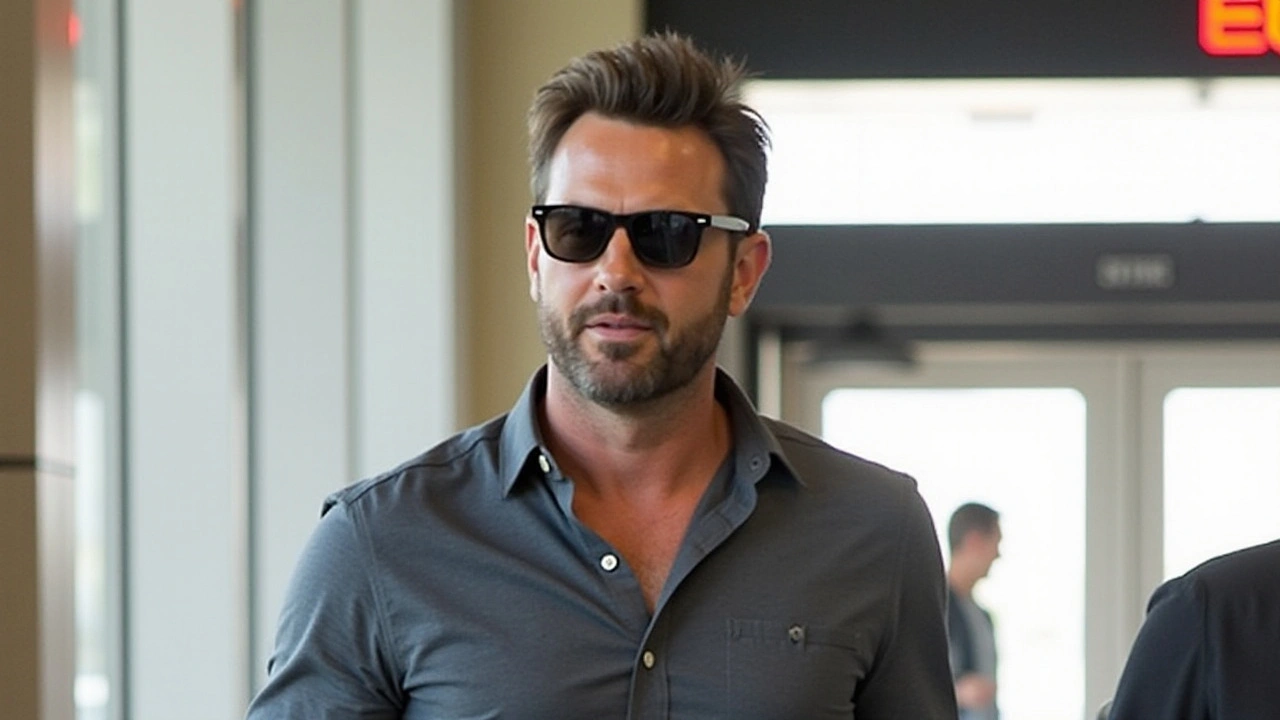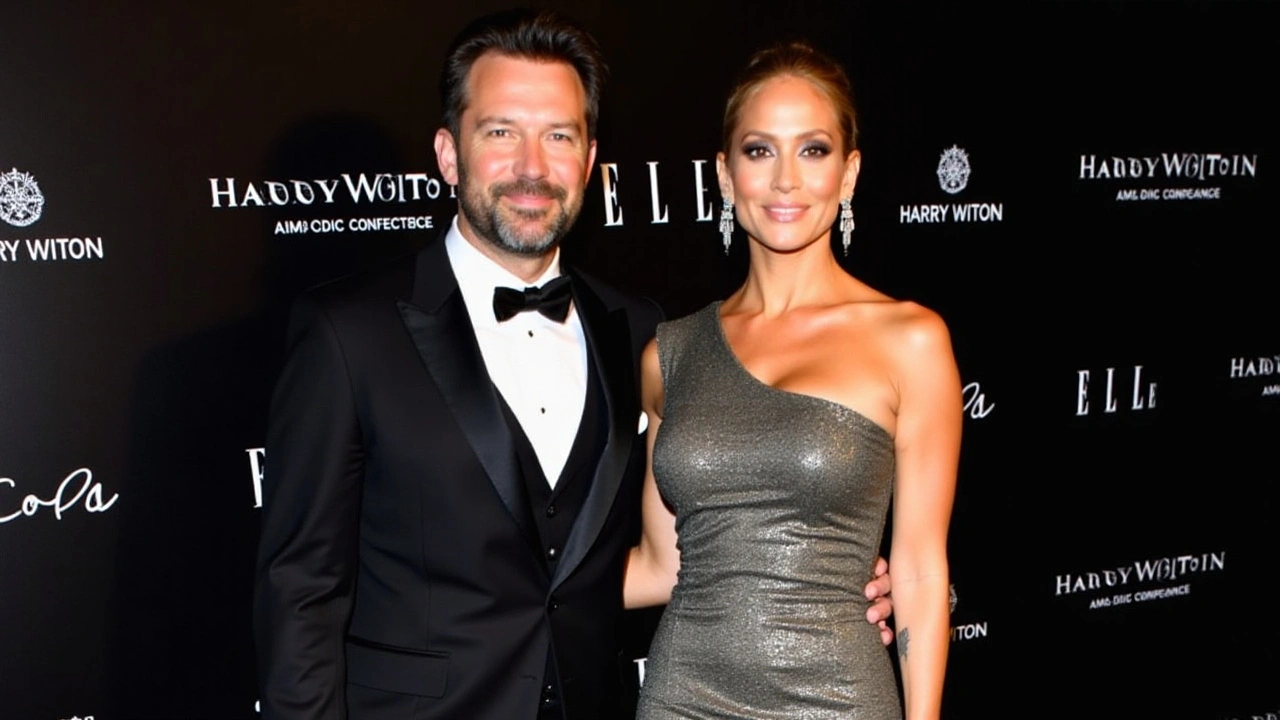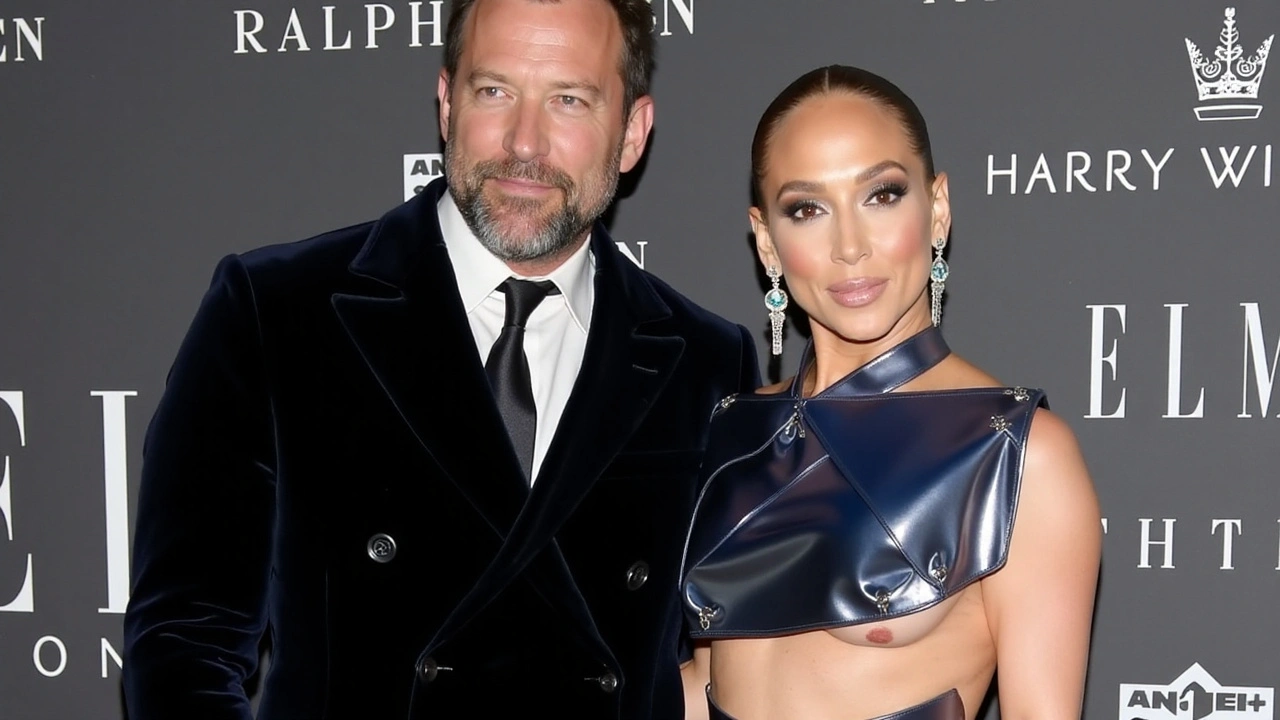When Jennifer Lopez and Ben Affleck announced their divorce, the public reaction was anything but uniform. For some, the news came as a major shock, while others could not resist a slight sense of schadenfreude—a German term that refers to deriving pleasure from someone else’s misfortune. It's a complex feeling, and understanding it requires delving into various psychological, societal, and personal factors.
The Media’s Role in Shaping Public Responses
The relationship between Jennifer Lopez and Ben Affleck was always under the media's glaring spotlight. Starting from their initial romance in the early 2000s to their rekindled love in 2021, the couple was no stranger to tabloids and paparazzi. Media coverage plays a critical role in shaping public perceptions, offering not just information but also steering emotional responses among readers and viewers. The constant barrage of updates, speculative headlines, and intrusive photography can make even the most private matters seem like public domain. Consequently, when such high-profile relationships falter, the public feels a sense of intricate involvement that fuels reactions ranging from empathy to schadenfreude.
Psychological Aspects of Schadenfreude
Schadenfreude is not just a fleeting feeling; it's a powerful psychological phenomenon. Why do people feel pleasure in another's downfall? Various factors contribute to this complex emotion. One reason is the validation it offers; when even celebrities, who seem to have it all, face problems, it can make ordinary people feel less isolated in their struggles. Another aspect is the competitive nature intrinsic to human beings. Seeing someone 'fall,' especially if they are perceived as better off, can create a misguided sense of balance, if not superiority.
Personal Experiences and Social Comparisons
Personal experiences significantly influence how people react to such news. Individuals going through their own relationship troubles may find solace in the idea that celebrity couples are not immune to issues. This isn’t just limited to romantic relationships. The same dynamic can apply to professional setbacks, personal losses, and even minor inconveniences. Social comparison theory suggests that people evaluate their own worth based on how they measure up to others. Celebrity breakdowns provide a stark metric for such comparisons, making others see their lot in a brighter light.

The Societal Pressures of Celebrity Relationships
Being in a high-profile relationship can be a double-edged sword. While there are perks like fame and fortune, the downside involves relentless scrutiny and unrealistic expectations. Maintaining a relationship is challenging enough without the added pressure of public opinion. The spectacle of Lopez and Affleck’s romance and subsequent divorce emphasizes the toll that continuous spotlight can take on personal lives. It’s a stark reminder of how fame, while alluring, can complicate the simplest of human experiences.
The Public’s Fascination with Celebrity Lives
The public is endlessly fascinated with celebrities, and this is not a new phenomenon. From royal families to Hollywood stars, society has always shown an insatiable appetite for news about the elite. This interest is partly because celebrities live lives that, for better or worse, are drastically different from the average person's. Their successes and failures seem more magnified and, as a result, more engaging. The cycle of media production and consumption feeds into this loop, making celebrity news a staple of popular culture.
Social Media and the New Age of Schadenfreude
In the age of social media, reactions to celebrity news are more immediate and, often, more visceral. Platforms like Twitter and Instagram allow people to share their thoughts quickly and with a wide audience. Memes, hashtags, and viral posts can rapidly amplify sentiments of schadenfreude. Examples abound of how swiftly the internet reacts to the fallouts of high-profile relationships. Social media's reach ensures that these reactions are not confined to personal circles but become part of a larger, public discourse.
Cultural Reflections on Human Nature
Why does society take such pleasure in others’ misfortune? It’s a question that delves deep into human nature. Some might argue that schadenfreude reflects a darker, more primal side of human beings. Others suggest it’s a coping mechanism, a way for people to navigate their own insecurities and challenges. Either way, this phenomenon is deeply rooted in societal behavior and is reflected in our consumption of media. From ancient Greek tragedies to modern-day reality shows, people have always found a perverse comfort in the troubles of others.

Expert Opinions on Relationship Challenges
Experts in psychology and sociology offer insights into why people react the way they do to celebrity divorces. According to some, it's about validation—seeing that even 'perfect' lives are flawed can offer a sense of relief. Others suggest that it’s about misplaced justice; life's inequities often leave people feeling powerless, and schadenfreude provides an illusion of balance. Additionally, the public may project their own anxieties and experiences onto these celebrities, making their stories a proxy for their personal struggles.
The Impact on Future Celebrity Relationships
The scrutiny and public judgment faced by celebrity couples like Lopez and Affleck have broader implications for other high-profile relationships. While being in the spotlight offers unparalleled advantages, it also means any personal tribulations are magnified and dissected by the public. Future couples may opt for more privacy, navigating their relationships away from prying eyes to avoid similar reactions. In essence, the lessons learned from such high-profile divorces could pave the way for more discreet relationship management among celebrities.
Final Thoughts
The divorce of Jennifer Lopez and Ben Affleck serves as a mirror reflecting society's complex relationship with celebrity culture. It underscores the challenges of maintaining privacy in an age of relentless media scrutiny and instantaneous social media reactions. More importantly, it sheds light on the human propensity for schadenfreude, offering a nuanced understanding of our emotional responses to the highs and lows of those we place on pedestals. In the end, their story is a testament to the fact that no one, not even the most glamorous among us, is immune to life's inevitable ups and downs.


James Lawyer
Your analysis raises several important points regarding the interplay between celebrity culture and collective emotional responses. The media's relentless coverage creates a feedback loop that amplifies both empathy and schadenfreude among audiences. From a legal perspective, the invasion of privacy can be framed as a violation of personal rights, yet the public market demands constant updates. Psychological research suggests that observing high-status individuals experience setbacks can serve as a self‑validation mechanism for many people. Social comparison theory explains why the downfall of a star like Jennifer Lopez is perceived as a leveler of social hierarchies. Moreover, the constant barrage of sensational headlines triggers dopamine release, reinforcing the habit of consuming such stories. The role of social media platforms further accelerates this process by enabling rapid meme generation and viral commentary. Cognitive dissonance may arise when fans reconcile admiration for the celebrity with their pleasure at the misfortune. This tension often manifests in polarized comment sections where supportive and mocking voices clash. Historical parallels can be drawn to the public's fascination with the Roman emperors' scandals, indicating a timeless pattern. Ethical considerations arise when journalists prioritize clicks over nuanced reporting, potentially distorting the narrative. In addition, the legal ramifications for defamation become more complex in the era of user‑generated content. The phenomenon also reflects broader societal anxieties about fame, wealth, and the perceived fairness of success. Understanding these mechanisms can help media consumers develop a more critical stance toward such coverage. Ultimately, your article invites a deeper reflection on why we are drawn to the rise and fall of public figures.
Abby Culbertson
i cant belive they split, so sad lol.
Awolumate Muhammed Abayomi
i think the media wats over the top, they alwayse make drama out of nothing. It feels like they ghet paid to keep us hooked. Even when the couple tries to keep things private, the press finds a way to push in. It’s a wild cycle that never ends.
Josh Tate
Totally get what you're saying. It’s rough seeing people’s personal lives turned into headlines. I feel for anyone who’s been put under that kind of glare-nothing’s private anymore. We should remember they’re human too.
John Smith
Look, the whole schadenfreude thing is just basic human nature-people love a good fall from grace. If you think the celeb’s drama is unique, think again; it’s the same pattern you see with any public figure who gets too big for their boots. The media just feeds the beast, and we all eat it up.
Alex Soete
Exactly! The energy in these discussions shows how we can all rally around a story and learn from it. Let’s keep the conversation productive and not just drown it in gossip. Together we can push for more respectful coverage.
Cara McKinzie
Oh wow, another celeb breakup? We’ve seen it a thousand times, but the hype never dies. It’s like the tabloids are on a sugar rush, and we’re the addicts. Honestly, it gets old fast.
Joseph Conlon
While many might simply scroll past, I think it’s worth noting that this whole narrative of “celebrity downfall” reflects deeper societal insecurities. Sure, the headline is juicy, but underneath lies a collective need to validate our own lives by comparing them to those in the spotlight. It’s not just idle gossip; it’s a mirror for our own anxieties, and that’s why we keep circling back to these stories, even if they feel repetitive.
In the end, the cycle persists because it serves a purpose-comforting us in the knowledge that no one, not even the most glittering stars, is immune to the human condition.
Mohit Singh
Honestly, who cares? They’re rich, they get what they want. I’m over this whole drama. It’s just another trashy headline.
Damian Liszkiewicz
🤔 It’s fascinating how we all lean into these stories. On one hand, we empathize, but on the other, there’s that undeniable thrill of seeing a titan stumble. Maybe it’s our hidden desire for balance in a world that feels so tilted toward the elite. 🌟
Angela Arribas
Seriously, folks, let’s remember the importance of respectful language. Using correct grammar not only clarifies meaning but also shows decency toward the subjects involved. :)
Sienna Ficken
Oh, look at this-another “celebrity tragedy” that the internet can’t get enough of. How original! It’s almost adorable how we all pretend to be shocked while simultaneously scrolling for the next meme.
Zac Death
Honestly, we’ve all been there-watching the news cycle spin another celebrity breakup into a full‑blown saga. It’s a bit like watching a soap opera that never ends, and we find ourselves both entertained and oddly comforted by the familiar rise‑and‑fall rhythm. It’s weird how these stories can serve as a sort of social glue, binding strangers together over a shared, if somewhat frivolous, interest. While it may seem shallow, there’s something genuinely human about relating to the ups and downs of people who, despite their fame, experience the same emotional turbulence we do every day. So yeah, keep the discussion going-maybe we’ll all learn a little something about ourselves along the way.
Lizzie Fournier
Good point-you’re right that we often overlook the deeper layers beneath the headlines. It’s refreshing to see a more balanced take on these events, acknowledging both the human aspect and the media’s role.
JAN SAE
Hey everybody, great discussion! Let’s keep the vibes positive-remember, every story has two sides, and we can learn from both. Stay supportive and keep sharing your thoughts!
Steve Dunkerley
Indeed, the discourse underscores the need for critical media literacy, especially when dissecting narratives that intertwine celebrity culture with psychodynamic frameworks. By employing rigorous analytical lenses, we can differentiate signal from sensationalism.
Jasmine Hinds
so cool how we all talk about this lol 😂 it’s like we’re all in this together
Madison Neal
Your insights on the sociocultural impact of celebrity breakups are spot‑on. Leveraging stakeholder‑centric strategies can indeed foster a healthier media ecosystem.
John Crulz
Interesting take-makes me wonder how much of our reaction is genuinely about the couple versus the narrative they’ve been fed. Either way, it’s a reminder that our perceptions are constantly being shaped.
Anita Drake
Exactly, cultural context matters a lot. Different societies interpret these events through their own lenses, which can lead to varied emotional responses.